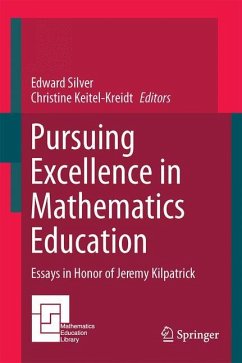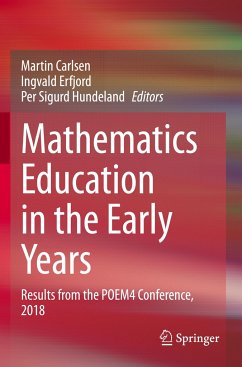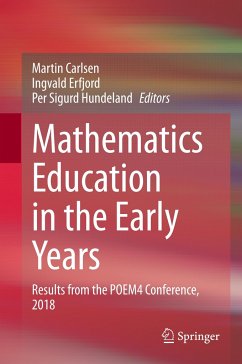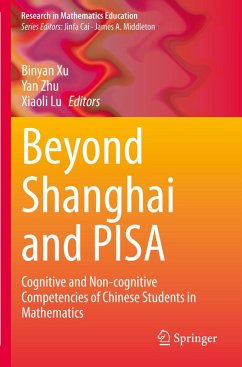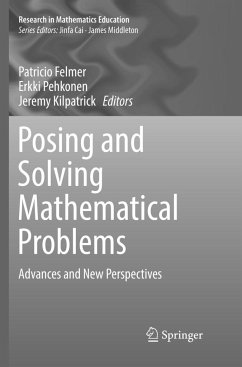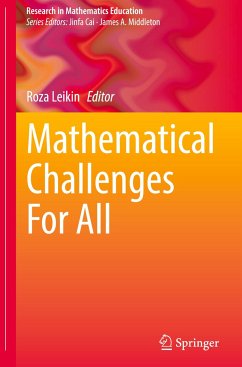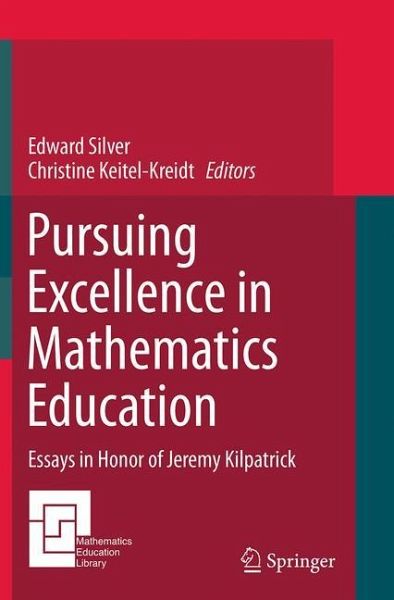
Pursuing Excellence in Mathematics Education
Essays in Honor of Jeremy Kilpatrick
Herausgegeben: Silver, Edward; Keitel-Kreidt, Christine
Versandkostenfrei!
Versandfertig in 6-10 Tagen
38,99 €
inkl. MwSt.

PAYBACK Punkte
19 °P sammeln!
Chapters in this book recognize the more than forty years of sustained and distinguished lifetime achievement in mathematics education research and development of Jeremy Kilpatrick. Including contributions from a variety of skilled mathematics educators, this text honors Jeremy Kilpatrick, reflecting on his groundbreaking papers, book chapters, and books - many of which are now standard references in the literature - on mathematical problem solving, the history of mathematics education, mathematical ability and proficiency, curriculum change and its history, global perspectives on mathematics ...
Chapters in this book recognize the more than forty years of sustained and distinguished lifetime achievement in mathematics education research and development of Jeremy Kilpatrick. Including contributions from a variety of skilled mathematics educators, this text honors Jeremy Kilpatrick, reflecting on his groundbreaking papers, book chapters, and books - many of which are now standard references in the literature - on mathematical problem solving, the history of mathematics education, mathematical ability and proficiency, curriculum change and its history, global perspectives on mathematics education, and mathematics assessment. Many chapters also offer substantial contributions of their own on important themes, including mathematical problem solving, mathematics curriculum, the role of theory in mathematics education, the democratization of mathematics, and international perspectives on the professional field of mathematics education.





